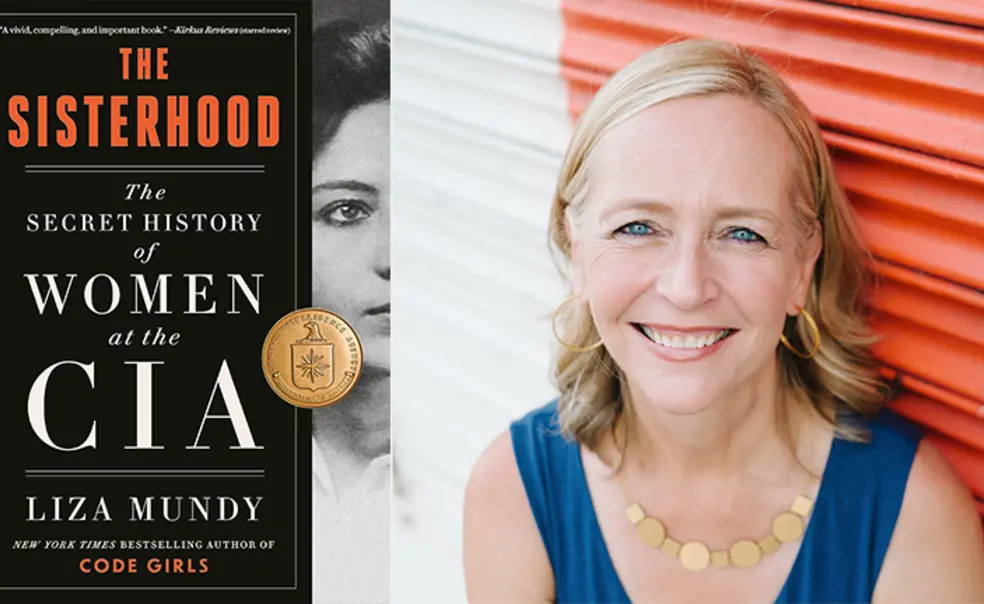Newsmakers Q&A: Liza Mundy ’82 on CIA Women and Turning Her Book into a Series
Liza Mundy ’82 is a journalist whose books center on influential women in the realms of history, government, and politics. Her most recent, The Sisterhood: The Secret History of Women at the CIA, has been optioned for a scripted series with Lionsgate. She shares her research and writing process behind the book as well as expectations for the upcoming series.
What inspires you to write about these themes in your books?
I think we’re at this interesting moment where our understanding of American history and the groups of citizens who contributed significantly to our history is expanding and, in the publishing world, the willingness to tell these stories is also expanding — thanks in part to the success of books and movies like Hidden Figures and hopefully Code Girls and other works that are highlighting and broadening our sense of history.
I was fascinated to learn how women, who until that point had so few professional opportunities, were recruited into or found their way into our early intelligence-gathering efforts. Many of those who did this work were graduates of the seven sisters colleges, and it turned out that there were a number of Princetonians whose mothers had done this work, so the degrees of separation were small to nonexistent between my cohort of undergraduates and the women involved.
How were you involved in the decision for a series adaptation, and why was The Sisterhood especially apt for that kind of development?
It started when my book contract was announced and producer Scott Delmon contacted me, because he’s always been interested in intelligence and espionage. He happens to have a close relationship with Lionsgate. As I was working on the book, it was sent out to a number of producers and production companies and there were several offers but everybody seemed excited and committed at Lionsgate. So it will be really fun and interesting to see it evolve.
What was your initial reaction when it was confirmed, and what do you hope to see?
I was really pleased. There’s always a lot of work between something getting optioned and then actually showing up on the screen so it wasn’t a sudden revelation. I’m managing my expectations, but I do feel optimistic that The Sisterhood series will be realized. I hope I get to be involved in the process, but it will be interesting to observe a screenwriter or a team in the writers room with how decisions are made to make a television narrative. I’m really interested to see how a group of professional storytellers feels [it’s] best to tell the story.
Is there any experience from your time at Princeton that was your favorite or that contributed to your writing? Do you have any advice for Princeton student writers?
The funny thing about writing is it never really gets easier. Whether or not one gets better at writing, I don’t know. But I think over the years, I’ve at least gotten more patient with myself during the draft writing process. You have to just kind of sit back and trust the process. If I’m feeling like my writing itself is not where I want it to be, I just tell myself that my editor friends will help make it better. I try to have faith that with every new iteration, hopefully it’ll get stronger and better.
I was active in the Triangle Club, writing scripts or directing the writers workshops for our spring show in 1982. Hopefully that experience will transfer to a writers room as this series progresses. I’d imagine any kind of writing for stage or screen is more collaborative, and not only with more writers, but also to see your work actually embodied and acted by professional actors is really thrilling. I just got a little glimpse of that in this club — the way a great performer can transform the material on the page. I’m really looking forward to that experience, which I remember from my time at Princeton.
— Interview conducted and condensed by Elisa Gonzalez ’27










No responses yet